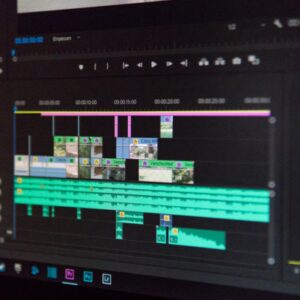
Creating Stunning Photo Slideshows: A Comprehensive Guide with 6 Top Programs
In the age of digital storytelling, photo slideshows have emerged as a compelling medium to encapsulate cherished memories, communicate ideas, and captivate audiences. Whether you seek to…

How to Record Your Screen on a MacBook: Five Efficient Ways
Ready to tap into the full potential of your MacBook and use it to craft captivating content, share your expertise, and communicate effectively in today’s digital realm?…

How to Record WhatsApp Video & Voice Calls
In this age of digital connections that pulse through our lives, WhatsApp stands out as the rhythmic heartbeat keeping us in sync with friends, family, and colleagues….

Capturing the Moment: A Guide to Recording Live Streams on Mac
In today’s technologically advanced era, live streaming has emerged as the preferred platform for a wide range of content, spanning from extensive gaming sessions to culinary demonstrations…

Comparing the Top 10 Video Encoders for Optimal Compression and Quality
Have you ever wondered how those high-definition videos on your favorite streaming platforms appear crystal clear and play seamlessly, even on your smartphone? Well, it’s all thanks…

Battle of the Voice: TeamSpeak vs. Discord – Which Reigns Supreme?
In the ever-evolving world of online communication, two titans have emerged to dominate the landscape: TeamSpeak and Discord. These platforms offer voice chat and text messaging services,…

Taking Screenshots in Windows 11: Everything You Need to Know
Hey there, tech-savvy explorers! Are you ready to unlock the magic of screen capture in Windows 11? Whether you’re a seasoned computer whiz or just getting acquainted…
Exploring the Wonders of Synthesia AI
In the dynamic realm of technology, few innovations have stirred as much excitement as Synthesia AI. Picture a world where the complexities of video production are simplified…
A Showcase of the Best AI Music Video Generators Transforming the Entertainment Industry
Are you ready to witness the merger of technology and art like never before? Imagine an AI that can compose captivating music and then transform it into…
Rumble vs. YouTube: Exploring the Battle for Online Video Dominance
In the vast digital landscape of online video sharing, two titans have emerged as contenders for the throne: Rumble and YouTube. These platforms have engaged in a…
